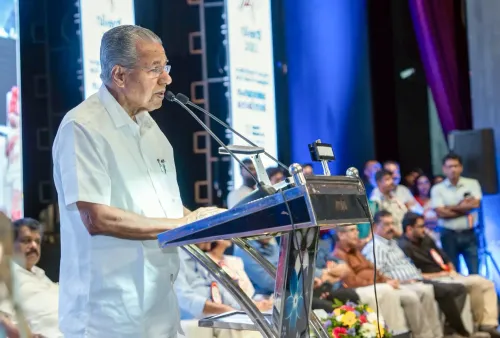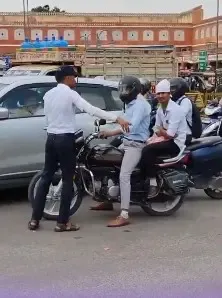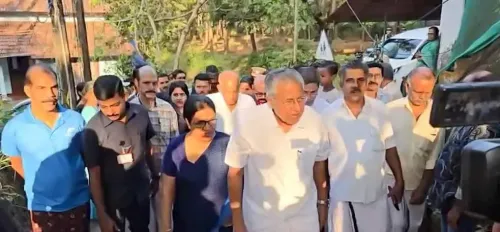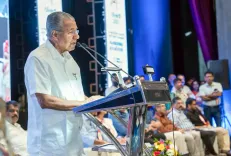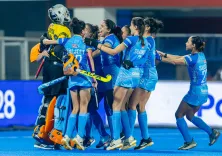Will Delhi Unveil a New Drainage Master Plan?
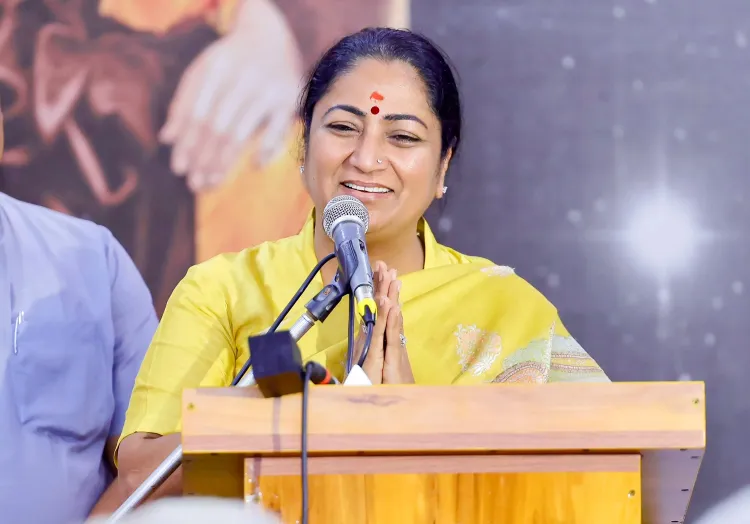
Synopsis
Key Takeaways
- New Drainage Master Plan to be launched on Friday.
- Initiative is part of 'Seva Pakhwada' celebrations.
- Focus on upgrading the city's aging drainage infrastructure.
- Real-time monitoring will be enhanced through the ICCC.
- 194 waterlogging areas identified for remediation.
New Delhi, Sep 19 (NationPress) A brand new Drainage Master Plan for Delhi is set to be launched on Friday as part of the initiatives during the two-week 'Seva Pakhwada' organized by the Rekha Gupta government to honor Prime Minister Narendra Modi's birthday, as stated by an official.
The plan will be introduced by Union Housing and Urban Affairs Minister Manohar Lal at an event chaired by Chief Minister Rekha Gupta, just two days after PM Modi’s birthday on September 17.
This Master Plan aims to provide effective solutions for the enhancement of the city’s drainage system to manage rainwater and diminish the accumulation of water in low-lying areas and streets.
Previously, a verbal exchange took place between the Delhi government and the opposition AAP regarding rainwater drainage during the monsoon season.
Officials indicated that the aging drainage system struggles to cope with rainfall exceeding 50 mm in a day, while the AAP criticized the government for its inadequate response to waterlogging issues.
The government clarified that not every incident of water accumulation qualifies as waterlogging. "When rainwater dissipates within a few minutes, it is not classified as waterlogging. True waterlogging occurs when water remains stagnant for 4-5 hours," stated a communication.
In July, Water Minister Parvesh Sahib Singh announced efforts to formulate a new master plan to revamp the city’s 50-year-old drainage infrastructure. The previous plan was developed in 1976.
Delhi's drainage network is supported by three basins: Najafgarh, Barapullah, and Trans Yamuna. Up until July, draft reports suggesting drainage improvements in the Najafgarh basin had been received, while reports on the other two basins were still pending.
Prior to the monsoon season, CM Gupta instructed the establishment of an Integrated Command and Control Centre (ICCC) to serve as a central hub for overseeing and managing various city operations, including traffic, water supply, and sanitation.
CM Gupta assessed the situation, stating, "Our objective extends beyond temporary fixes; we are committed to implementing long-term, substantial enhancements to Delhi's infrastructure. Each department has received explicit directives to tackle these challenges with a mission-oriented approach and achieve measurable results."
“We aim to eliminate issues related to waterlogging, traffic, and security for the residents of Delhi. Our government is dedicated to transforming Delhi into a secure, accessible, and clean capital where citizens can enjoy improved facilities at all levels,” she affirmed.
Emphasizing ongoing efforts to address waterlogging, the Chief Minister remarked: "Currently, we have identified 194 areas prone to waterlogging. These fall under various departments such as PWD, NHAI, DMRC, DDA, MCD, NDMC, and DCB. Out of these, short-term measures have been successfully completed in 129 areas, with instructions issued to finalize the remaining tasks promptly."
She explained that the ICCC will integrate data from multiple sources to deliver real-time situational awareness and aid decision-making for city officials. Furthermore, it will play a critical role in emergency response by supplying immediate information on incidents and coordinating efforts among different departments.



